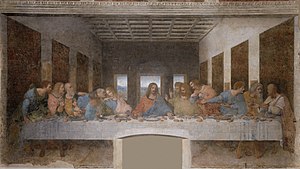This people honors me with their lips, but
their hearts are far from me…” (Mark
7:6b)
I wasn’t on the guest list for the White
House dinner last Monday to honor evangelical leaders, even though I am a pastor of the Evangelical Lutheran
Church in America. Of course, I’m not much of a leader, but I noticed that our
ELCA Presiding Bishop, Elizabeth Eaton, didn’t get an invite either. About 100
other pastors, evangelists, and Christian commentators did get a free steak
dinner with President Trump, however, and some fifteen or so of them spent half
an hour publicly praising the Commander-in-Chief for the great work he has done
on behalf of Christianity here in the USA.
(The balance of the program was taken up
with Trump publicly praising himself
for his pious and righteous good works for the Kingdom of God. The President
pointed out that he has ended the government’s “attacks on communities of faith,”
so I guess we can all come out of hiding now.)
Texas mega-church pastor Jack Graham even
commented that, although religious leaders are often charged to speak truth to
power, the White House dinner was an opportunity for conservative Christians to
speak “love to power.”[i]
The faithful 100 praised the President for
his pro-life stance, his ending of the Johnson Amendment, his support of
religious liberty, his support for the military (I’m not sure why that is a Christian value, but James Dobson seems to think it is), and his support for
Israel.
Yessiree, these multi-million dollar
mega-church preachers sure do love the Donald. And why not? You know how we
Americans love our freedom. We want to be free to own as many guns as we
please. We want to be free to make as much money as we please—free from
burdensome government regulations and taxes. We want to be free to shout “Merry
Christmas!” without being accused of political incorrectness.
And we Americans are so good at extolling
our virtues in order to cover up our neglect.
In the Gospel lesson appointed in the RCL for
Pentecost 15, Year B (Mark 7:1-23)[ii], Jesus calls out the
religious leaders for their pure hypocrisy. The Pharisees, the “religious right”
of Jesus’ day—the guys who were all about the rules and regulations and purity
issues—start giving Jesus a hard time because his disciples haven’t ritually washed
their hands before eating. They don’t seem to care that Jesus’ peasant
disciples might just be too hungry to stand on ceremony. Jesus fires back that
these critics abandon the commandments of God in order to keep to human
traditions (v.8).
To me, the verses which really speak to me
today are verses 9 through 13. Jesus gives an example of how the religious purity
code goes against God’s command to love with compassion. He reminds the
Pharisees of their tradition of Corban,
a term which relates to the Temple treasury. If a Pharisee made a pledge to
give money to the Temple, he was exempt from taking care of his elderly
parents. That is, he could make himself look like a big shot at the expense of
the old folks.
When I hear the pastors of these gilded
mega-churches talk about “Christian Values,” I often think of Corban. They
preach about protecting unborn babies, but they don’t seem to care what happens
to babies who are born in poverty. They rail against abortion, and do so by
advocating cutting the funding to organizations like Planned Parenthood which
serve to protect the reproductive health of millions of American women. They talk
about “defending the family” by outlawing gay marriage, but they are silent
about creating workplace child care centers. They cheer for Israel, but forget
that Palestinians (many of whom are Christians) were also created in the image
of God.
The unfortunate fact here is that we all
are guilty in some way of trying to disguise our vices as virtues. When we are
criticized we try to explain away our thoughtlessness or our neglect as
necessary to protecting some higher standard. Either that, or we turn on our
critics and accuse them of being greater sinners than we are. In this portion
of Mark’s Gospel Jesus is calling us to look to our own hearts and examine our
own motives. He also calls us to look to our own sense of obedience to the
command to love and sacrifice with compassion.
One of my jobs this past week was to fill
out the church’s renewal application for a reduced “church rate” from the
Philadelphia Water Department. The form asked me to state with examples and in
full sentences how our congregation benefits the neighborhood. I certainly
appreciate that we hold public worship, celebrate the Church’s sacraments, and
teach children the Christian faith, but I am most grateful that our religious
practice leads us to a compassionate response to the poor, the addicted, the
elderly, and the homeless.
I feel very blessed to serve the parish I
serve, and to see many individuals who willingly sacrifice their time and
treasure so that this church may serve the community. At the end of each day I
try to ask myself if I’ve truly served the Kingdom. Have I lived out the
commandment of God, or only serviced the human tradition? It’s not a bad
question to ask.
Thank you for spending this time with me.
[i] No
shit. He actually said this. You can read the article from the Christian Post at ttps://www.christianpost.com/news/white-house-hosts-100-evangelical-leaders-state-like-dinner-this-is-spiritual-warfare-227044/
[ii]
Verses 9-13 and 16-21 are mysteriously omitted in the RCL, but you really need
to read them to get the whole sense of this passage.

